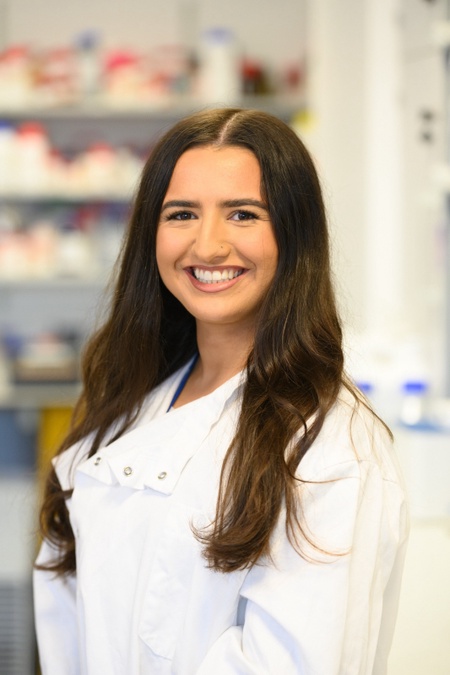To celebrate International Women’s Day, we talked to PhD Medical Sciences student Lara Dasar about her research on the menstrual cycle and glycaemic outcomes which aims to empower women to feel confident when exercising.
Hi Lara, can you tell us about what you're working on right now?
My research is all about helping women deal with metabolic conditions like diabetes. Research on the 24-hour human body clock (circadian rhythms) may help shape advice about what time is best to exercise to get the most benefit when it comes to blood sugar levels. I’m looking at how the menstrual cycle is also a part of the equation - hopefully unlocking ways to give women more confidence about doing the physical activity that can best help them stay healthy.
Given the time-related nature of both menstrual cycle related hormonal fluctuations and circadian rhythms, it’s essential to understand when insulin sensitivity is most favourable for exercise-induced glucose uptake. Fears around low blood sugar (hypoglycaemia) can create a major barrier to people with Type 1 diabetes doing exercise that would help their health. So, by understanding these intersections, I hope exercise strategies can be optimised in both performance and clinical populations. My work will involve conducting human studies, exercise testing, and collecting data using a mixed methods approach.
The other side to my PhD is the work that I will be doing with my industry partner, Aparito, a data science company digitalising clinical trials. For this part of the project, incorporating Patient and Public Involvement (PPI) and collating qualitative outcomes will help us address the use of tools to gather female health information, such as period tracking apps. Establishing the most accurate and accessible ways to record such information and embedding this into Aparito’s ATOM5 app, will enable the seamless tracking of menstruation to be integrated into clinical trials, for more precise, inclusive and impactful research.
What program are you currently enrolled in, and how does it support your research development at the University of Aberdeen?
As an EastBio funded PhD Medical Sciences student based at the Rowett Institute, I have access to various resources and support that are beneficial to my project. As part of EastBio , I have received specialised training sessions on a variety of topics such as omics, poster presentations and coding in Python, all of which will supplement my PhD. Based at the Rowett Institute, I am surrounded by a supportive community of researchers and have access to other internal/external training opportunities. I have also recently joined the Aberdeen Centre for Women's Health Research, a supportive community of researchers who have the same passion for improving female health outcomes.
How is this PhD experience shaping your future goals as a researcher or professional?
In the short term, I have goals to publish high-quality articles, build relationships with clinical researchers and industry experts in the digital health space, and build proficiency in the analytical techniques and technologies we’re using. After completing my PhD, I hope to play a role in shaping future exercise prescriptions and interventions for metabolic health, with a strong emphasis on personalised approaches that account for hormonal cycles and circadian rhythms, whether that be through academic leadership, public health, or technological innovation.
What advice would you give to students, especially aspiring young women, considering a career in medical or scientific research?
I started my academic journey in the arts (MA English) and have worked my way to a PhD in Medical Sciences. I have embraced the reality that I don’t fit the academic mould and therefore my advice to students and other young women is that you can do genuinely anything, but don’t sit back and wait for things to fall into place. Find what excites you, build a strong network, create opportunities, and be bold.


